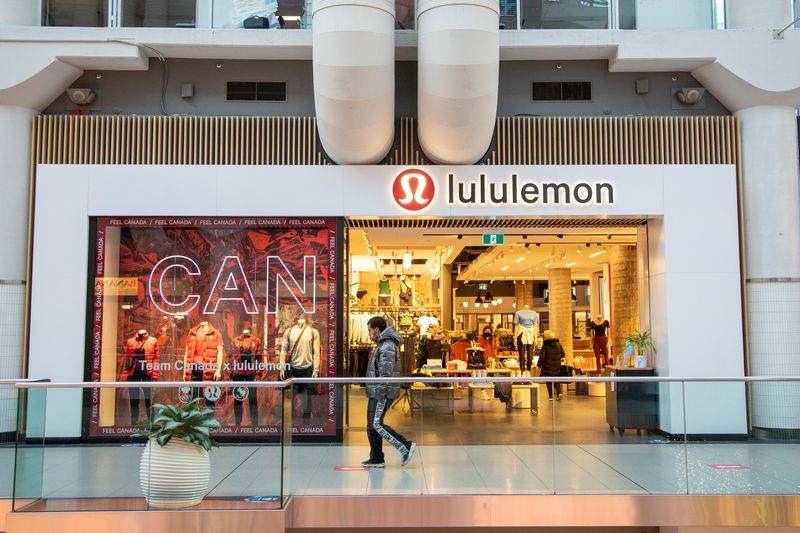By Savyata Mishra
(Reuters) -Lululemon Athletica cut its annual sales and profit forecasts on Thursday, as demand for its pricey leggings and tank tops slowed in North America amid selective consumer spending.
Its shares swung between heavy losses and gains to settle 5% higher after the bell as the athleisure wear maker's profit beat estimates and it promised to speed up efforts to improve the product mix.
The company has seen a slow start to 2024 after years of strong growth as persistent inflation led to selective spending by shoppers.
Its women's business has taken a hit from slower innovation in seasonal apparel, lower stock of smaller sizes and color and product missteps.
Lululemon (NASDAQ:LULU) had to pull its "Breezethrough" leggings from stores and website within weeks of its July launch as customers complained about the fit, material and seams, resulting in fewer new options for women's bottom wears.
"For 2025, we are fast-tracking new styles within performance, shorts, tops, and track suits," CEO Calvin McDonald said on a post earnings call.
"We are optimistic that we will begin to see the benefits of these strategies over the upcoming quarter."
Lower promotions and a tight check on costs aided gross margin which 80 basis points in the quarter.
The company's shares have declined about 14% in the last three months as investors braced for a forecast cut. They have lost nearly half of their value this year.
Comparable sales rose 2%, but missed expectations of a 6.05% increase, driven by a 3% decline in sales in Americas. Comparable sale surged 21% in China.
"Athleisure spending continues to wane overall, but we have also seen Alo and Vuori continue to gain share against Lulu," Jefferies analyst Randy Konik said.
The company expects fiscal 2024 net revenue in the range of $10.38 billion to $10.48 billion compared with a prior forecast of $10.70 billion to $10.80 billion.

It expects to earn $13.95 to $14.15 per share compared with its previous forecast of between $14.27 to $14.47.
In the second quarter, it earned $3.15 per share, better than LSEG estimates of $2.93.